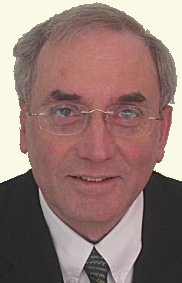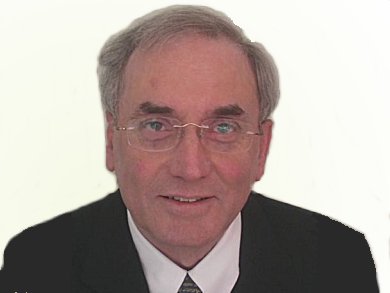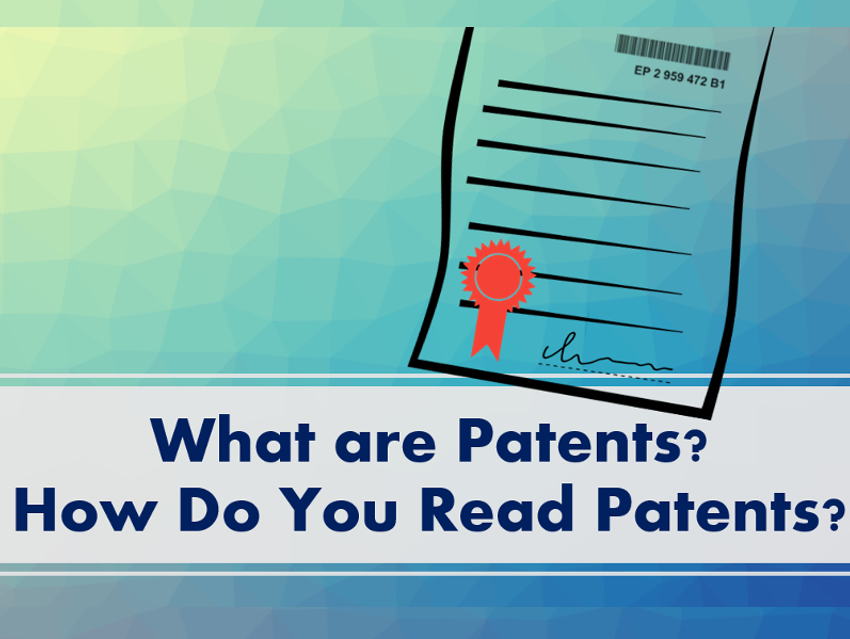Dr. Mark Cesa is a process chemistry consultant at INEOS Nitriles Process Technology, USA, and since the beginning of this year he has been the new President of the International Union of Pure and Applied Chemistry (IUPAC).
Here he talks to Dr. Vera Koester for ChemViews magazine about his career, his plans for IUPAC, and why IUPAC has been and continues to be one of the greatest experience of his life.
Since January 1 you have been the new President of IUPAC. What are your goals for your presidency?
IUPAC, the International Union of Pure and Applied Chemistry, is an extraordinarily productive scientific organization. Through the efforts of its many volunteer chemists and staff, IUPAC provides essential information in its traditional areas of nomenclature, terminology, symbols, standards, critically evaluated data, conferences, workshops, and publications that enable chemists worldwide to speak a common language. Science is evolving very rapidly, and the traditional fields of science are overlapping more and more.
As IUPAC approaches its centennial in 2019, my goals are to equip the union for its next century by developing a revised strategic plan that includes growth in membership, focus on the developing world, greater involvement of chemists and scientists in related fields in IUPAC’s work, new ways to serve the global chemistry community, and enhanced collaborations with other scientists, sciences, policy makers, and the public.
What made you decide to accept this position?
As a career industrial scientist, I started in IUPAC as a Young Observer more than fifteen years ago in the IUPAC Committee on Chemistry and Industry. I was impressed with the committee’s projects and with the people working on them, and I offered to help in any way I could. I was given the task of coordinating the Safety Training Program for scientists in developing countries. After becoming Chair of the Committee of Chemistry and Industry (COCI), I was encouraged to consider becoming a candidate for President. As an industrial chemist I hoped I could bring a unique approach to leadership in the union.
Why is working for IUPAC important to you?
I believe that IUPAC’s contributions enable chemists around the world to work together. IUPAC is sometimes called the “United Nations of Chemistry”. The opportunities IUPAC provides for me every day to interact with people from diverse nations and cultures have helped me grow tremendously in a way I would never have been able to do otherwise. I truly feel like a “citizen of the world” as a result of my IUPAC experience.
What is the role of IUPAC in your opinion?
IUPAC has an essential and unique role in chemistry. Because of its global reach with well over sixty National Adhering Organizations and many hundreds of volunteer scientists from around the world, IUPAC offers a global perspective on critical issues in chemistry, education, and science policy that transcends and enhances the valuable work that national chemical societies carry out around the world.
What excites you most about chemistry today?
Chemistry, like all sciences, is developing extremely rapidly, especially at the interfaces with other scientific disciplines. Chemistry has often been called the “central science”, and this is manifested in the important role that chemistry is playing today in areas such as environmental protection and improvement, medicine, energy, water, and efficient syntheses of new materials and products, to name a few. In all of these, collaborations between chemists, scientists in other disciplines, technologists, engineers, business experts, and governments are essential to success.
What are your hopes for the future?
I sincerely hope that more and more young people get involved in chemistry and related sciences and technologies. There is a great need for fresh new ideas to improve the lives of people all over the world, and these ideas will come from the next generations of chemists. This is why I feel so strongly about the great importance of chemistry education, not only for new chemists, but for public understanding and appreciation of science, and why I enthusiastically support IUPAC’s Young Observer program.
Which trends would you like to see disappear?
I would like to see distrust of science and fear of chemicals end. One of the most important things that all chemists can do is to speak objectively and openly about how chemists can improve people’s lives.
How has your career developed?
My career has been a mixture of industrial research and volunteer contributions to scientific societies. I began my career at Standard Oil of Ohio, whose technology for the manufacture of acrylonitrile is one of the unsung marvels of catalytic chemistry. That process is still used today and is continuously being improved after more than sixty years. I have worked in homogeneous and heterogeneous catalysis, polymer chemistry, biochemistry, and manufacturing support. Most recently my research has focused on kinetic and molecular modeling of catalytic reactions. I have been a volunteer in the American Chemical Society at the local and national levels as well in IUPAC.
I have always believed that, at some point in your career, you will use everything you have learned. It’s certainly been true for me – both my research and my volunteer contributions influence the way I work in both arenas.
Who has inspired you most in chemistry and during your career?
I’m like many of the other chemists I know in that I was blessed with an excellent high school chemistry teacher. Ms. Helen Fine made learning about how chemical reactions work exciting for me. My PhD advisor, Prof. Charles Casey, taught me how to think critically and in depth about the mechanisms of chemical reactions – my favorite part of chemistry. Dr. James Idol, an inventor of the Sohio acrylonitrile process, and all of his colleagues at Sohio are “heroes of science” for me for their landmark development of the process. And most important, my wife Irene, who is also a chemist, is a daily inspiration for me, with her level-headedness and ability to think critically and see the heart of any problem.
What do you do in your spare time?
I am an avid recreational cyclist. I ride well over 100 miles per week around my home in Chicago – except when it snows! In the last few years, my children and I have entered triathlon competitions as a relay team – my daughter Laura swims, I race my bike, and my daughter Anna or my son Dave runs. We have won medals for each of the last three years!
What else would you like readers of ChemistryViews.org to know about you, IUPAC, and your experiences?
I love being a chemist, and my work in IUPAC has been and continues to be one of the greatest experiences of my life.
Thank you for the interview.

Mark C. Cesa studied chemistry at Princeton University, NJ, USA, and received his PhD in organic chemistry from the University of Wisconsin-Madison, Madison, WI, USA, in 1979.
He started his professional career at Standard Oil Co., Ohio, USA, worked with BP, USA, from 1986–2005, with Innovene USA, LLC, from 2005–2006, and joined INEOS, Wheaton, IL, USA, in 2006. Currently he is a process chemistry consultant at INEOS Nitriles Process Technology, USA.
Cesa was Vice President of IUPAC from 2012 to 2013 and is President from 2014 to 2015. He was on the Delegation to Meetings of SAICM (United Nations Strategic Approach to International Chemicals Management) in 2008 and 2009, the Delegation to the UN Commission on Sustainable Development (with ICSU) in 2010, and was member, secretary, and chair of the IUPAC Committee on Chemistry and Industry.
Selected Awards
BP Chemicals Outstanding Performer Award, 1996, 1997
BP Chemicals Breakthrough Award, 1999, 2000
BP Chemicals Helios Award Commended Entry, 2004
American Chemical Society Fellow, 2012
Selected Publications
- Kinetic Modeling to Estimate Fundamental Yield Bounds for Selective Propylene Oxidation over Bifunctional Catalysts,
H.-W. Wong, M. C. Cesa, J. T. Golab, J. F. Brazdil, W. H. Green, Jr.,
Appl. Catal., A 2006, 303 (2), 177–191.
DOI: 10.1016/j.apcata.2006.01.039 - Stereochemistry and Mechanism of the Ring-Opening Reaction of Cyclopropylenones with LiCu(Me)2,
C. P. Casey, M. C. Cesa, A. J. Shusterman,
Organometallics 2012, 31, 7849–7854.
DOI: 10.1021/om300520r
- Leading IUPAC Forward,
M. Cesa,
Chem. Int. 2014, 36 (1), 2–3.




